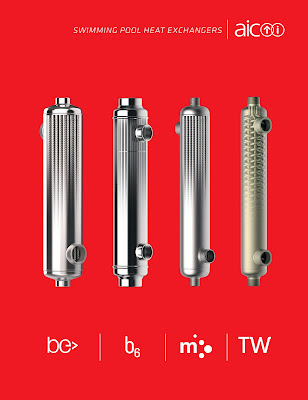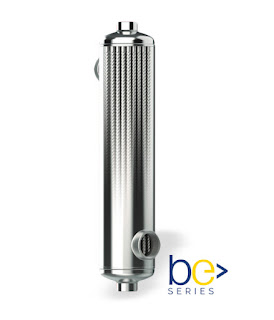What are Swimming Pool Heat Exchangers – The Benefits And Tips To Choose The Best Heat Exchanger for Your Pool
You can't help but go swimming outside even though winter has already arrived. The good news is that you can now enjoy swimming outdoors as much as possible since the Swimming Pool Heat Exchanger has been installed.
So, if you're still learning the fundamentals of swimmingpool heat exchangers, here's a quick explanation.
What Is
Swimming Pool Heat Exchanger
The hot water from your boiler or your solar-heated water
circuit is used by a pool heat exchanger to heat the water in your pool. A
swimming pool heat exchanger can be used in chlorinated and saltwater pools,
whirlpools, Jacuzzis, hot tubs, spas, and pools heated by solar energy. Pool
heat exchangers come in a variety of designs, but they all function to assist
you to reach the ideal pool water temperature.
Pool hot water heat exchangers come in a variety of designs
from Alternative Heating & Supplies. Therefore, whether you need a plate
heat exchanger, a heat exchanger made of stainless steel, a heat exchanger with
shell and tubes, or a heat exchanger made of cupronickel, there are suppliers
that will provide your pool requirements.
The pool heat exchangers heat up quickly, are
cost-effective, and do not require conventional gaskets. It has a stainless-steel
tube which makes them ideal if you have a high-pressure configuration. They
also do well in high temperatures.
Usually, the heat exchangers made of cupronickel are
incredibly strong and can survive seawater corrosion. They are a wonderful
option if simple cleaning and maintenance are crucial to you.
Benefits
Of Swimming Pool Exchangers
·
Cheaper than plate coolers in price
·
Tube leaks are simple to identify and fix.
·
Simple pressure testing is required.
·
The flexible design allows for changes to pipe
size and type
·
Tolerant of thermal shock
·
Constructed to withstand extreme temperatures
Things
You Should Look For When Buying Swimming Pool Exchangers
·
Make certain that it resists rusting. Choose a
titanium heat exchanger if you have saltwater to increase its durability.
·
Low-maintenance heat exchangers should be looked
for. Nobody wants to deal with maintenance difficulties.
·
A high flow rate will increase the unit's
efficiency and require less maintenance. The water heats up more quickly
because the apparatus can handle more energy.
·
The available energy will not be able to travel
through the heat exchanger if the flow rate is too low.
·
It is crucial to understand the differences
between the coolant and the hot fluid. Consequently, the coolant must always be
placed below the hot fluid. More heat will be removed from the hot fluid when
the coolant temperature is lower than when it is higher.
A heat exchanger for your pool is a difficult choice to
make. There are several moving parts and changing your central heating system
is complicated.
This information should give you clarity on choosing the
right Swimming Pool Heat Exchanger Your decision will largely depend on your budget,
pool water type, and mechanical aptitude.


Comments
Post a Comment